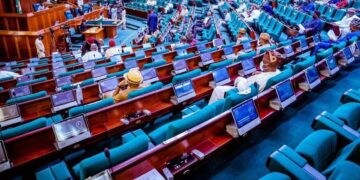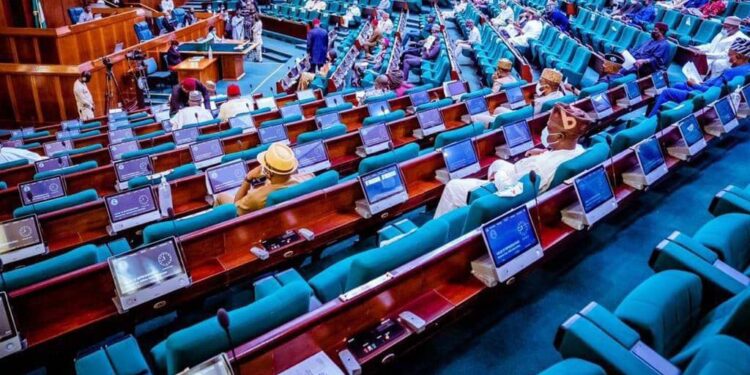By Enyichukwu Enemanna
Nigeria’s House of Representatives says it is committed to the recovery of over $9 billion gas flaring fines imposed by Federal Government on erring local and foreign companies operating in the country.
The House expressed worry over the level of impunity being perpetuated by some oil companies, stating that it would do everything within its powers to ensure the unpaid levies are recovered and companies operate within the confines of extant legislations and regulations in the sector.
Chairman, Ad-hoc Committee investigating gas flaring, Ahmed Munir stated this on Monday during the post-investigative hearing briefing.
The briefing had in attendance various stakeholders drawn from Federal Ministry of Environment, Revenue Mobilisation Allocation and Fiscal Commission (RMAFC), National Oil Spill Detection and Response Agency (NOSDRA), among others.
“I can assure you that we will not take this lying down. There are two ways to go about it, we have the issues of penalties that are not paid, amounting to about $9 billion or thereabout, that one is there. We know how to recover it.
“Secondly, going forward, those that are still polluting how do you ensure you get it down to zero and what are the penalties that are going to be out in place.
“Thirdly, the big difference between then and now is, we now have a PIA in place so how do you implement it. Where we have loophole that’s why we are here to hear from the people concerned. Is there any amendment that will be required?
“If you are going to bid for oil bloc in Nigeria, and you see that out of the criteria one is your gas master plan, how do you key into that? You can’t win a bid without ensuring you’ll be able to utilise that gas or evacuate the gas responsibly.
“The issue of how many people do FIRS run around and.make them to.pay their taxes, if you’re a contractor and you are bidding, and you don’t have your FIRS Certificate, you are not going to go anywhere if you don’t have various certificates whether BPP, BPE or whatever may be the case.
“So, if don’t have that, you can’t win the bid, so are we going to go and look for you to pay your fees or you go yourself to pay your fees? So, we have to create a mechanism where the business environment requires that certain things need to be put in place.
“If an establishment is going out to go and look for loan and you are owing another bank, I believe there’s a central database of CBN that even if you’re owing N1 you’ll be declined.
“So, why shouldn’t we have a centralised database of defaulters owing, of the people who are not doing the right thing they can’t further renege on these issues,” Munir noted.
In his address, RMAFC Chairman Gas Monitoring Committee, Mr. Patrick Mgbebu disclosed that the gas flare penalty payment regime from 2013-2018 (2018 Jan-June) was US$0.30, while from 2018 (July-Dec) to 2023, it is pegged at $2.00.
The penalties payable amounted to $3,465,299,226.55 and the value of gas would have been $12,403,000,001.20 if the gas was sold and not flared.
“The Commission compared the data from NOSDRA with the data from the Nigerian Upstream Petroleum Regulatory Commission (NUPRC) and the following observations were made that the volume of gas flared according to NOSDRA and NUPRC were 838,667,211 Mscf and 700,975,019 Mscf respectively. The difference which is 137,692,192 Mscf indicated that the Federation Account was shortchanged. It should be noted that the comparison covered three years from 2020 to 2022.
“That the value of gas flared according to NOSDRA and NUPRC are $320,583,355.48 and $43,325,050.76 respectively. As such the variance Indicated that the Federation Account was shortchanged by $277,258,304.72″, he said.




































